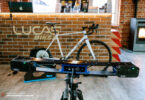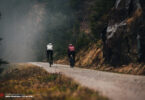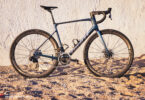Cycling is synonymous with freedom. The freedom to use your own muscle power to get wherever you like. The freedom to live in the moment, meet people, and achieve something together. But this freedom is in danger from self-imposed, nonsensical style rules, rituals and planning perfectionism. Why are we willingly putting it at risk?
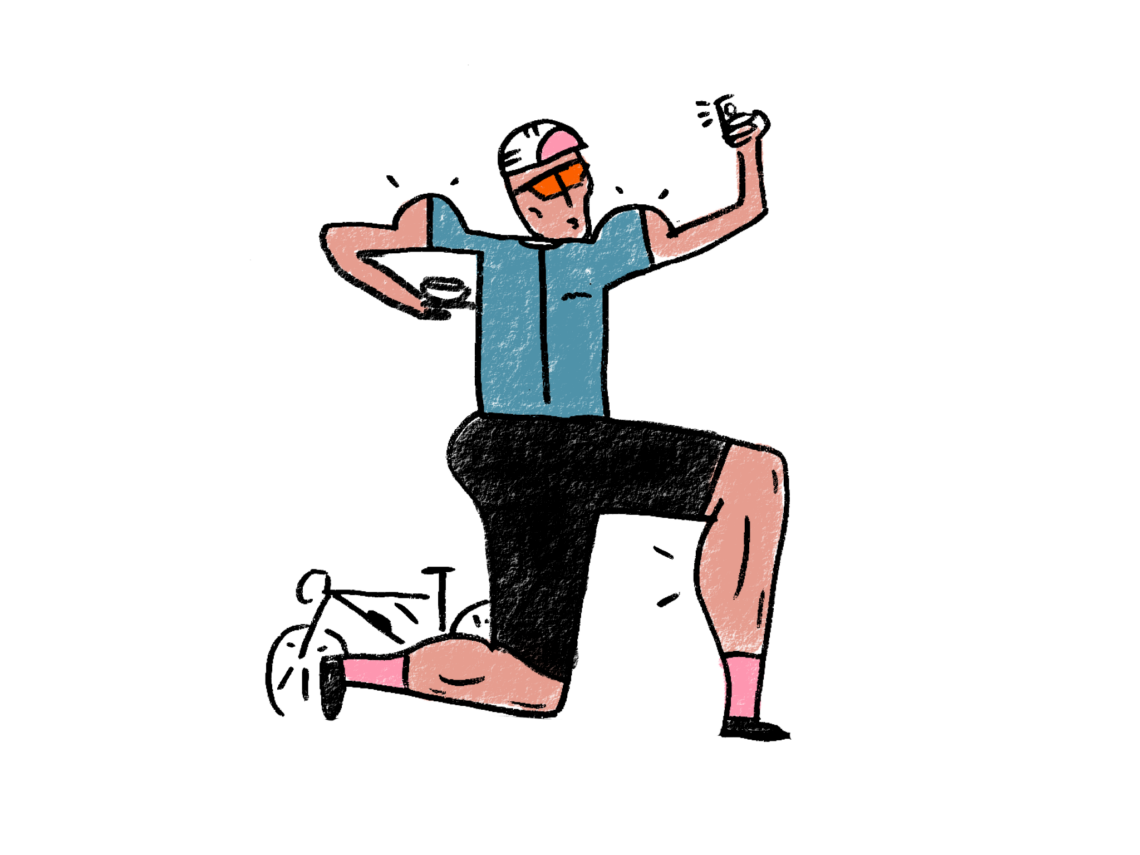
The notion that anyone can ride a bike must be a chilling thought for those of us who identify as cyclists. Hell, it’s a sport that’s so simple and egalitarian that we – as road bike aficionados – have chosen to introduce rituals and taboos to increase our sense of belonging to this exclusive tribe.
In terms of motor skills, cycling is pretty basic, with a low threshold of entry, if you like. Toddlers can do it, and the elderly too. Riding on smooth tarmac doesn’t exactly pose an insurmountable challenge. Whatever image you’ve got in your head of a rider dancing elegantly on the pedals or oozing grace goes to hell on compact gears. Style? Insta-worthy cornering? Not this time, mate. Having disc brakes won’t turn an average descender into a superhero either.
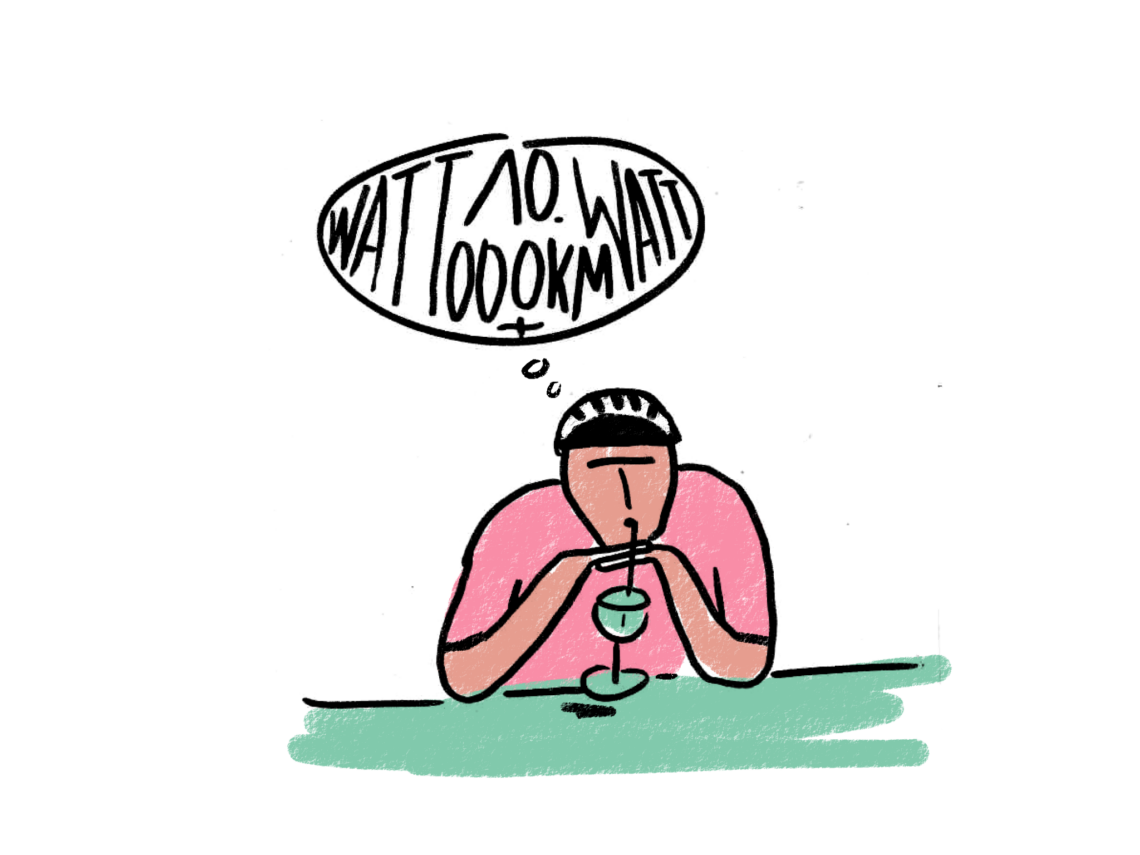
Strip away the gear, and all you have left are thousands of kilometres, painstakingly tracked and processed for an eternal life on Strava. Insignia of your discipline, heroism and ability to suffer, laced with the secret desire that it will one day collate and crescendo into a tidal wave of watts. But come the end of the year, this wave inevitably peeters out. Even Rapha’s Festive 500 can’t change the course of it. By March, your legs won’t care that your FTP was 5% higher last September. What’s worse is seeing newbies in running shoes making an attempt for the crown on your local climb after a few months of enthusiastic training. The danger is real.
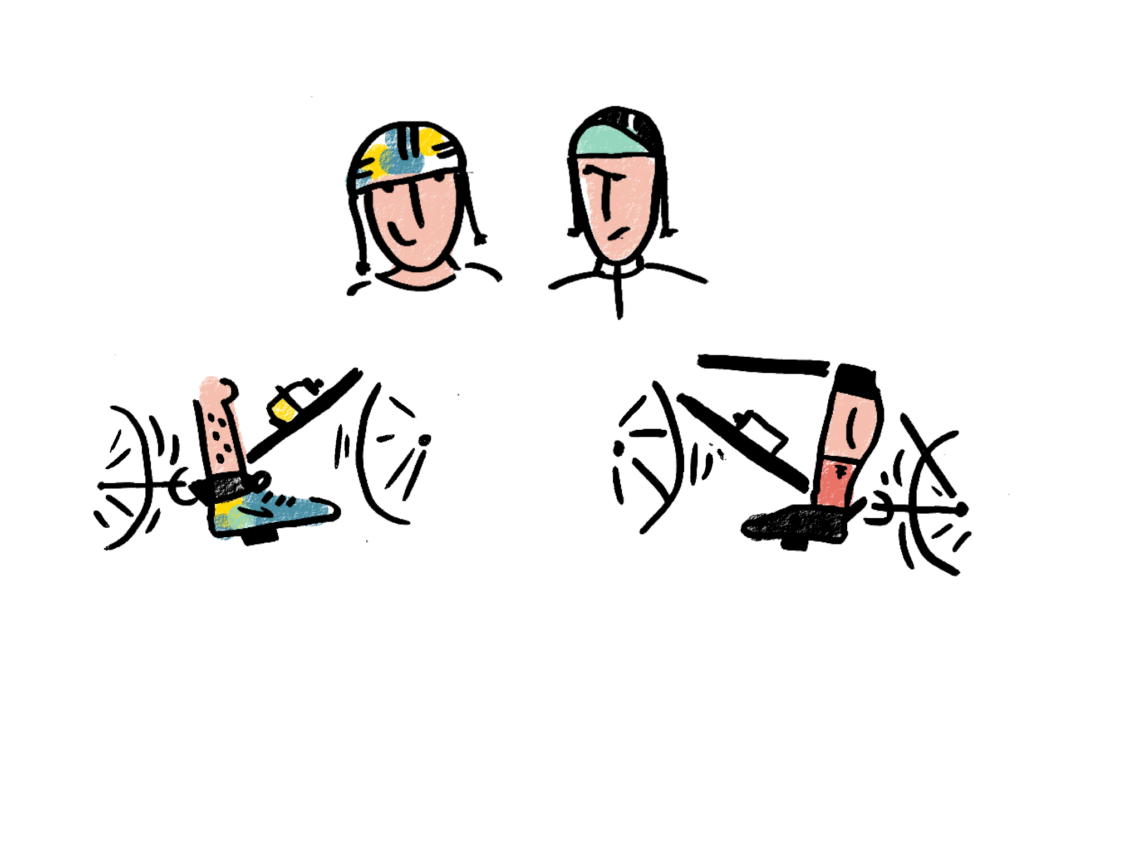
But, luckily, there’s a dimension of road riding that can’t be tapped into through raw talent or disciplined training. There are the unwritten rules, delineating the veteran from the virgin. Etiquette is the unwritten code that has been installed to both unite and divide our community – a way of socially classing you as a rider, let’s say. You choose to wear an obscure cap under your POC helmet. Tan lines are obligatory if you want to attend early spring club rides. Say what? You didn’t go to the training camp in Mallorca? And if you’re not a cliché coffee connoisseur, forget about the post ride banter over that ‘oh so delicate cold brew, with nutty tones and hints of citrus.’

At least something unites us: In the eyes of the general public we’re the weirdos in lycra, the obsessives that go to absurd lengths – either dressed in subtly curated tones of merino wool or tutti-frutti Italian-style garb – to complicate a simple tool of transport, turning into a lifestyle for a tribe.
Look past integrated cockpits, high-end apparel and your deep dive into training stats, cycling can be fun. It doesn’t have to be stressful. When we agonize over the perfect route, calculate fuel intake and carb ratios in our bottles, and manically refresh the weather apps, we put fun into jeopardy. Do we ride further or better because of any of these things? Our fixation on the turn-by-turn navigation eliminates the unpredictability: The more we plot and plan, the more we deprive ourselves of opportunities or encounters. What is down that road that’s not on our route? After all, adventure and experience only come when we embrace the serendipitous nature of the world around us.
Cycling is a promise of freedom, the experience of being out there, pushing your limits. And I hate to break it to you, but this isn’t influenced by sock height, the colour of your shoes, or your choice of jersey. On the contrary. Your desperate hunt for a wall socket when your bike computer is out of charge, the curation of your outfit, and the ritualized reward when your local barista hands over your coffee all detract from the focus: your ride. It’s all white noise, prioritizing other people’s opinions over your own.
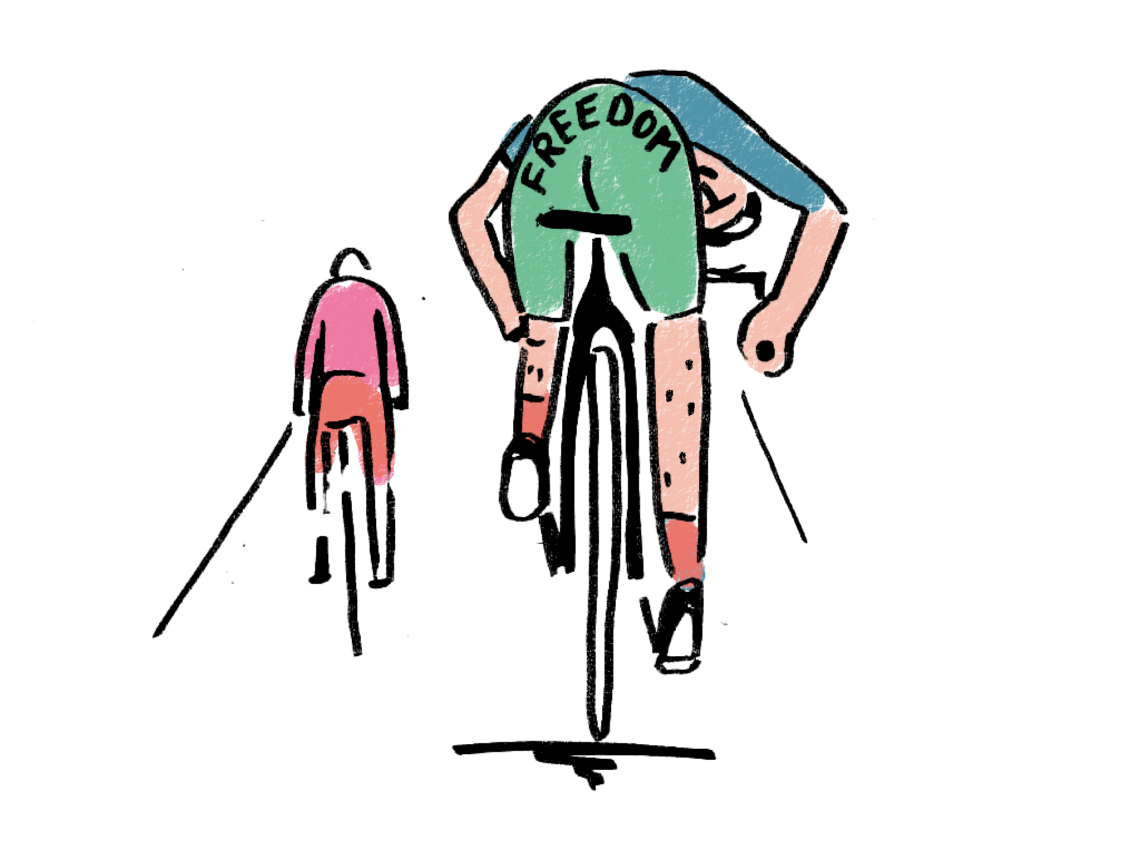
When we train, we stress our bodies to create an adaptation. This can not only be done through hill intervals, but on a mental level too. By worrying less about other people’s opinions, stamping out the post ride café reward, and having a looser approach to planning and tracking your rides, you can tap into new stimuli. Don’t just do it for your legs, but for your head too – that’s where freedom really begins.
Did you enjoy this article? If so, we would be stoked if you decide to support us with a monthly contribution. By becoming a supporter of GRAN FONDO, you will help secure a sustainable future for high-quality cycling journalism. Click here to learn more.
Words: Nils Hofmeister Photos: Julian Lemme


